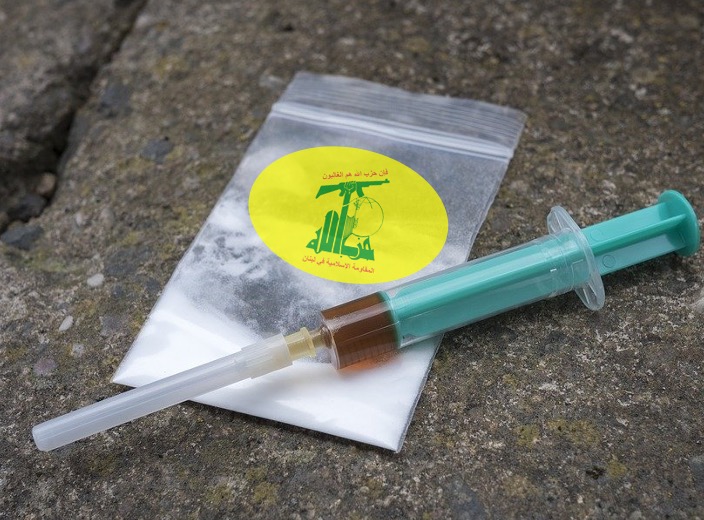Over the past two years, the wider global public has been increasingly exposed to the activities of the terrorist organization Hezbollah, the organization that has long been considered not just another fighting organization against Israel.
Hezbollah, which controls most of Lebanon, has already set up its own central bank – Al-Qarqa Al-Hassan, the Elnor supermarket chain and dozens of other businesses that are thriving economically and providing a comfortable lifestyle for Lebanese residents, in contrast to most parts of the country The Lebanese – Riyadh Salameh.
This is how Hezbollah buys the Lebanese people and brings them closer to it. In areas controlled by the organization, it encourages farmers to grow fruits, vegetables and also drugs to help Hezbollah stabilize the country’s economy.
Hezbollah’s secretary general, Hassan Nasrallah, delivered the well-known agricultural jihad speech on 7.7.2020 on the Al-Manar network and called on farmers in the country to grow as much crops as possible.
Hezbollah’s affair with drugs begins in the 1990s, when the head of Hezbollah’s military wing, Imad Ma’aniya, ordered Hezbollah operatives to join the various drug cartels in South and Central America to provide another channel for funding, to serve as an alternative channel for Hezbollah funding – independent funding and not just through the Iranian patron.
And so, it was – the organization’s activists in South America developed cocaine distribution networks to the United States through Mexico, and to Europe through African territories.
Over the years Hezbollah has expanded more and more, and not only will it export drugs to different countries in the world, it has started producing drugs itself.
In the Baka’a area in eastern Lebanon, Hezbollah today, through local farmers, grows huge amounts of heroin. Today, Bekaa is considered one of the largest drug production centers in the world (!). And not only does heroin grow in the organization, cannabis is also grown and the stimulant drug captagon, the jihad drug. Captagon is a drug used by Hezbollah and ISIS operatives before their operations.
About three months ago, 5.3 million Captagon pills were seized in Saudi Arabia during a shipment of grenades, the shipment was smuggled through the port of Beirut into the territory of the Saudi kingdom. In response, the Saudis decided to boycott shipments of vegetables and fruits from Lebanon and to ban such shipments from entering Saudi territory.
In July 2020, two large shipments of Hezbollah drugs were seized in the Italian port of Sarlano – some 85 million Captagon pills were seized in the port of Sarlano, and the blame was pointed at Hezbollah. What was interesting about that perception was the port from which the drug shipment left for Italy – a port for Adakia in western Syria.
Hezbollah has used and continues to use Syrian ports to export its drugs to various countries in the world, why not just from the port of Beirut?
The Assad regime and Hezbollah have had a cooperation agreement for years regarding the production and smuggling of drugs.
The Assad regime and the terrorist organization are working together in Syrian territory and also produce hundreds of tons of the Captagon drug to sell it around the world, rehabilitate the Syrian economy and put some more money in Hezbollah’s pocket.
The leader of the cooperation is Maher al-Assad, the brother of Syrian President Bashar al-Assad.
Maher has been in charge of the drug sector in Syria for years, and previously commanded Division 4 of the Syrian army.
Not only through ports Hezbollah smuggles drugs – but also through the Lebanese borders where it controls. Recently, we have witnessed a sharp rise in smuggling of drugs and weapons from Lebanon to Israel through loopholes in the perimeter fence.
At the beginning of July, the IDF’s spokesman in Arabic, Lt. Col. Avichai Adrei, revealed Haj Khalil Harb – a senior Hezbollah figure known in Israeli intelligence as ‘888’, a key figure in recent drug and weapons smuggling into Israeli territory. In this revelation, the IDF embarrasses Hezbollah regarding drug smuggling.
It is also believed that the IDF’s exposure came as a hint to senior members of the organization on the other side of the fence that Haj Khalil Harb was operating subversively under Nasrallah’s nose in a cloak of secrecy in order to market the drugs in his possession.
– But drugs in Islam are forbidden, so how does Hezbollah, which is considered a radical and religious Shiite organization, grow and export drugs?
Lebanese journalist Tony Bolus explains that the Hezbollah terrorist organization has rulings in which it states that selling drugs to societies that are considered hostile, such as European countries, Israel, Saudi Arabia and the United States, is a religious and moral obligation and thus absolves itself of all guilt.
.
Published by The Telegram World News (Hebrew)






